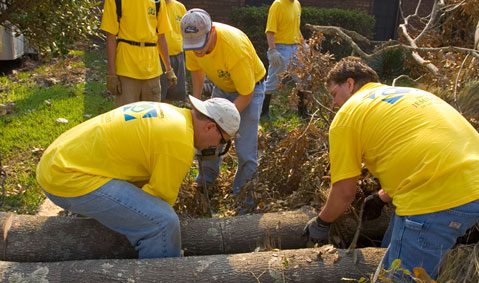
(LDS.org)
This is a very good piece by Ryan Larsen, quite apropos to a time when critics are vigorously attacking the Church over its humanitarian aid programs:
http://mormonpuzzlepieces.blogspot.com/2016/09/the-critics-chair.html?m=1
The situation reminds me of two favorite passages from very distinct places. The first of them was already mentioned by somebody today, but, unfortunately, I can’t recall who it was. I think of it in connection with the folks who fault us for doing no charity if we don’t mention doing charity, and who fault us for boastfulness if we do mention what we do:
But whereunto shall I liken this generation? It is like unto children sitting in the markets, and calling unto their fellows,
And saying, We have piped unto you, and ye have not danced; we have mourned unto you, and ye have not lamented.
For John came neither eating nor drinking, and they say, He hath a devil.
The Son of man came eating and drinking, and they say, Behold a man gluttonous, and a winebibber, a friend of publicans and sinners. But wisdom is justified of her children. (Matthew 11:16-19)
The second comes from a speech delivered by former President Theodore Roosevelt — he had been out of office for about a year — at the Sorbonne in Paris on 23 April 1910. It’s entitled “The Man in the Arena”:
It is not the critic who counts; not the man who points out how the strong man stumbles, or where the doer of deeds could have done them better. The credit belongs to the man who is actually in the arena, whose face is marred by dust and sweat and blood; who strives valiantly; who errs, who comes short again and again, because there is no effort without error and shortcoming; but who does actually strive to do the deeds; who knows great enthusiasms, the great devotions; who spends himself in a worthy cause; who at the best knows in the end the triumph of high achievement, and who at the worst, if he fails, at least fails while daring greatly, so that his place shall never be with those cold and timid souls who neither know victory nor defeat.
I’m thinking of those who criticize the Church and the Saints for not doing enough, or not doing it well, or allegedly doing it for the wrong motives, or whatever.
In the meantime, the Saints who are involved in these humanitarian aid programs and who are donating to support them simply keep on working.










